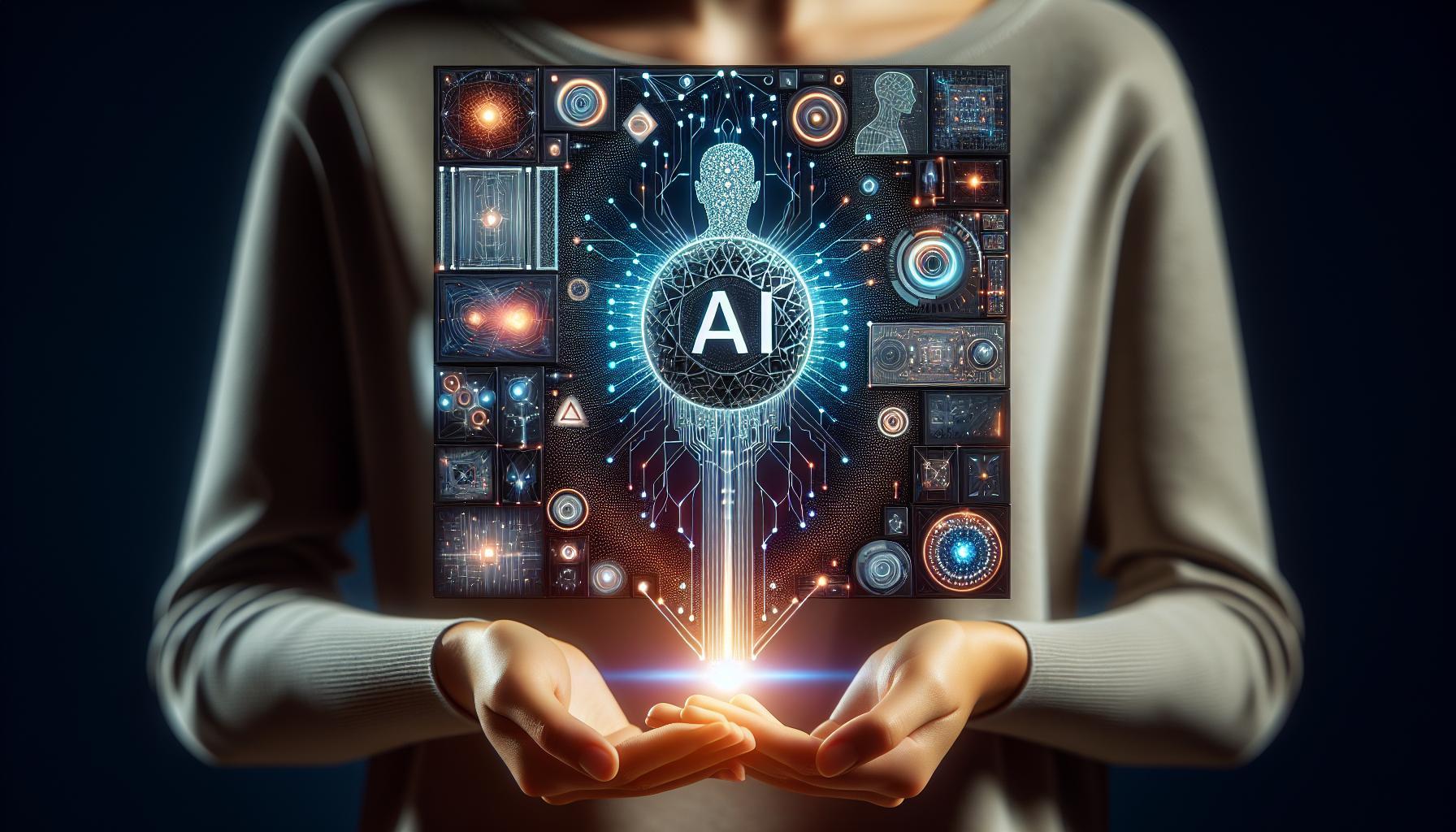As college admissions become increasingly competitive, the question looms: can artificial intelligence truly excel at crafting compelling application essays? This exploration is not just academic; it’s pivotal in understanding how technology shapes our narratives and aspirations. With AI’s rapid evolution, discerning its potential in personal storytelling is more relevant than ever.
Understanding AI’s Current Writing Capabilities
With the rapid advancement of artificial intelligence technology, many are left pondering its implications for various domains, including academia. Can AI truly produce quality application essays that are not only coherent but also resonate with human emotions? As educational institutions increasingly recognize the significance of the personal statement, understanding AI’s current capabilities in writing becomes essential.
Current State of AI Writing Technologies
AI models, such as OpenAI’s GPT-3 and similar tools, have made significant strides in generating text that can mimic human writing styles. These systems are equipped to analyze prompts, synthesize information, and produce essays that are grammatically sound and contextually relevant. However, while they may excel in creating structured content, there are certain limitations to their writing capabilities that prospective users must consider:
- Creativity: AI-generated essays may lack the unique creativity and personal touch that come from genuine human experience and emotions.
- Contextual Understanding: While AI can process language efficiently, it often struggles with deeper contextual nuances, potentially resulting in generic content.
- Emotional Resonance: Crafting essays that evoke emotional responses is a complex human trait that AI has yet to master effectively.
Analyzing AI’s Output: A Comparative Insight
To better understand AI’s writing abilities, let’s consider a simple table that compares traditional human-written essays to those generated by AI:
| Features | Human-Written Essays | AI-Generated Essays |
|---|---|---|
| Creativity | High – Personalized and distinct | Moderate – Follows patterns and prompts |
| Grammar | Varied – Prone to occasional mistakes | High – Generally error-free |
| Emotional Depth | High – Reflects genuine sentiment | Low – Lacks authentic emotional connection |
| Adaptability to Audience | High – Tailors content for specific readers | Moderate– Limited adaptability to nuances |
Practical Steps for Effective Application Essays
For those contemplating the potential of AI in writing application essays, consider these actionable steps:
- Use as a Supplement: Leverage AI tools for drafting ideas or generating outlines. They can serve as a springboard for your creativity.
- Focus on Personal Narrative: Use AI-generated content as a foundation, but infuse your personal experiences and stories to create a unique essay.
- Seek Human Feedback: After crafting your essay, have a mentor or peer review it. Human insight can spot areas where emotional depth is lacking.
- Refine and Edit: Use AI to help with grammar or style checks, but always ensure that the final voice is yours.
By understanding AI’s writing capabilities and limitations, you can explore how to effectively integrate these technologies into your essay writing process, ultimately leading to better application narratives that reflect your individuality.
The Role of Creativity in Application Essays
In a world increasingly dominated by artificial intelligence, the personalization and originality of a human touch is what sets apart truly compelling application essays. While the discussion around whether AI will become advanced enough to write good application essays is fervent and ongoing, one undeniable truth emerges: creativity plays a crucial role in crafting narratives that effectively connect with admissions committees.
The Uniqueness of Personal Stories
Application essays serve as a window into an applicant’s personality, motivations, and potential contributions to a community. Creative expression allows individuals to weave their unique experiences into a compelling narrative, making it easier for readers to relate to them. Unlike a formulaic approach that AI might take, human writers can reflect on their emotions, insights, and growth. Here’s why creativity is indispensable in these essays:
- Authenticity: Genuine stories speak louder than any polished but synthetic prose. Originality in thought and expression showcases the true self.
- Engagement: A creative narrative will captivate the reader’s attention, making them more likely to remember the applicant amid a sea of essays.
- Emotional Connection: Relatable and heartfelt anecdotes foster emotional links that can influence decision-making processes.
Strategies for Infusing Creativity
To create essays that are not just good but memorable, applicants should consider several strategies to enhance their creative expression:
1. Use Vivid Imagery
Incorporating descriptive language and sensory details can paint a vivid picture for the reader. Instead of stating facts, show how experiences affected you emotionally or intellectually.
2. Embrace Personal Anecdotes
Sharing personal stories that highlight challenges overcome or lessons learned invites readers to connect with your journey on a deeper level.
3. Experiment with Structure
A traditional essay format isn’t always the best choice. Break free from conventions by experimenting with different structures, such as starting with a question, a quote, or even a provocative statement that leads into your narrative.
4. Infuse Humor or Wit
When appropriate, a dash of humor can make your essay more relatable and enjoyable to read, leaving a lasting impression.
The Limitations of AI in Creativity
While AI might be advanced enough to string together compelling sentences or replicate common essay structures, it lacks the intrinsic ability to experience human emotions and reflections. This limitation poses a challenge when it comes to originality. A recent analysis highlighting some key differences shows:
| Aspect | Human Writers | AI Writers |
|---|---|---|
| Emotional Depth | High; can draw from personal experiences | Minimal; lacks personal experience |
| Originality | Unique perspectives and narratives | Tends to follow established patterns |
| Engagement | Creates a strong connection through storytelling | May engage but lacks depth |
As the discourse on whether AI will become advanced enough to write good application essays progresses, it is clear that creativity remains a pivotal element of the writing process, offering an incomparable advantage to human writers. By harnessing one’s individuality and experiences, applicants can ensure their essays resonate powerfully with admissions committees, paving the way for future opportunities.
How AI Analyzes and Adapts to Writing Styles
The evolution of artificial intelligence has sparked a transformation in various fields, including education and writing, making it a pertinent question whether AI will become advanced enough to write good application essays. The core of this transformation lies in how AI meticulously analyzes and adapts to different writing styles, enabling it to generate content that resembles human-like creativity and thoughtfulness.
Understanding Writing Styles
Every writer possesses a unique voice characterized by individual vocabulary, sentence structure, and stylistic choices. AI technologies, particularly natural language processing (NLP), are designed to recognize and learn from these characteristics. They examine vast datasets of diverse writing samples, identifying patterns and nuances that define distinct styles. This analytical capability allows AI to mimic approaches ranging from formal academic tones to conversational language, tailoring responses to meet the expectations of specific assignments or audiences.
Techniques Used in Style Analysis
AI employs various techniques to analyze and adapt to writing styles, including:
- Machine Learning Algorithms: These algorithms detect patterns in text data, learning from both successful and unsuccessful examples to improve their writing output.
- Sentiment Analysis: By assessing the emotional tone of a piece, AI can adapt its language to align with the intended impact, making application essays more persuasive.
- Stylistic Adaptation: Advanced AI can modify parameters like formality, length, and complexity based on the writing context, ensuring that it meets the expected standards of application essays.
Real-world Examples of AI in Writing
Several platforms have already begun to explore the potential of AI in crafting application essays. For instance, OpenAI’s GPT-3 has been utilized to generate impressive personal statements by drawing inspiration from successful essays available online. Institutions and students alike are intrigued by these capabilities, questioning whether these tools can indeed produce essays that resonate with admissions committees.
To illustrate the varying capabilities of AI in writing, consider the following table showcasing notable AI writing tools and their features:
| AI Writing Tool | Key Features | Best Used For |
|---|---|---|
| Grammarly | Real-time grammar and style suggestions | Editing and enhancing existing essays |
| Jasper | Generates content based on user prompts | Creating original essays and ideas |
| Quillbot | Paraphrasing and summarization capabilities | Improving clarity and conciseness of writing |
As AI continues to refine its abilities to analyze and adapt to different writing styles, the possibility of AI being sophisticated enough to write good application essays becomes less far-fetched. However, it remains crucial for students to actively engage in the writing process, ensuring that their authentic voice shines through, supported by AI as a helpful companion rather than a replacement.
Balancing Human Touch with AI Efficiency in Essay Writing
Despite the rapid advancements in artificial intelligence, the question remains: can machines truly capture the nuances of human experience, emotion, and intention that are vital for crafting compelling application essays? While AI excels at generating text based on patterns and data, the essence of application writing — that deeply personal narrative that reflects one’s individuality — often requires a level of creativity and emotional depth that technology struggles to replicate. As we navigate whether AI can become advanced enough to write good application essays, the balance between efficiency and the human touch remains pivotal.
The Limitations of AI in Personal Storytelling
While AI can generate grammatically correct sentences and even mimic various writing styles, it often falls short in conveying genuine emotion. Personalized essays that resonate with admissions committees are heavily reliant on personal experiences, reflections, and unique stories that showcase the applicant’s character. Here are some key areas where AI encounters limitations:
- Authenticity: AI-generated content may lack the personal touch that comes from lived experiences, making it difficult for applicants to forge genuine connections with the readers.
- Emotional Depth: The subtlety of human emotions, humor, and vulnerability are challenging for AI to encapsulate, leading to essays that might feel flat or insincere.
- Individuality: AI tends to produce generic responses based on existing data, risking the uniqueness that each applicant should strive to communicate.
Integrating Human Insights with AI’s Efficiency
Rather than viewing AI as a competitor, applicants can harness its capabilities to enhance their own writing processes. Here are some actionable strategies that blend AI support with the human touch:
| Strategy | Description |
|---|---|
| Drafting Assistance | Use AI tools for brainstorming ideas or outlining drafts, then infuse personal stories and insights. |
| Proofreading | Employ AI for grammar and style checks, ensuring that the final essay retains the author’s voice and narrative. |
| Research and Insights | Utilize AI for gathering data or insights about potential topics related to your personal experiences, but stay true to your unique approach. |
By leveraging AI’s efficiency in structuring thoughts or refining text while ensuring personal narratives remain central to the essays, applicants can create compelling and authentic submissions. Striking this balance is essential, particularly as the landscape of application essays evolves and the potential for AI contributions continues to grow. As we contemplate the future of essay writing, fostering a collaboration between human insight and AI capability presents an exciting pathway forward.
Potential Limitations of AI in Capturing Personal Narratives
While the capabilities of AI are expanding rapidly, its application in crafting personal narratives, particularly in the context of application essays, reveals significant limitations. AI lacks the deeply personal insights and emotional nuances that make human stories compelling. Each individual’s narrative is shaped by unique experiences, emotions, and reflections that are difficult for AI to interpret and represent authentically. As we explore whether AI will become advanced enough to write good application essays, we must consider its inherent challenges in capturing the essence of personal storytelling.
Understanding the Complexity of Personal Narratives
Capturing personal narratives requires a delicate blend of emotional intelligence, cultural context, and individual voice—elements that AI struggles to fully grasp. Unlike algorithms that efficiently process data, personal tales are rich with subtext, layered meanings, and a distinctive human touch. For instance, an applicant’s story about overcoming adversity is not merely a sequence of events; it embodies emotions like resilience, vulnerability, and growth that resonate on a personal level. AI, with its reliance on patterns and data-driven responses, may produce content that lacks this emotional depth.
Challenges in Authenticity and Originality
Another limitation lies in the challenge of authenticity. Application essays often reflect the applicant’s voice, character, and aspirations, which AI may inadvertently dilute. Using AI to craft these narratives raises concerns about originality and authenticity. Admissions committees are increasingly adept at identifying generic or formulaic responses, which might harm rather than enhance an applicant’s chances. Moreover, over-reliance on AI-generated content could stifle an applicant’s personal growth and self-discovery—crucial elements of the essay-writing process.
Addressing AI Limitations
To maximize the effectiveness of AI while addressing its limitations, applicants should consider the following strategies:
- Use AI as a Supplement: Treat AI tools as brainstorming partners rather than primary authors. This ensures that the final essay retains the applicant’s voice.
- Personal Reflection: Encourage thorough self-reflection and narrative development before leveraging AI to refine ideas.
- Human Feedback: Seek feedback from mentors or peers who can provide insights on emotional resonance and authenticity.
By applying these strategies, applicants can leverage AI’s strengths while ensuring their personal narratives remain genuine and impactful. As we determine if AI will become advanced enough to write good application essays, it is essential to acknowledge that the heart of personal storytelling lies in the human experience, something that AI, as of now, cannot fully replicate.
Case Studies: Successful AI-generated Content
In recent years, the advent of advanced AI technologies has sparked remarkable experiments in various fields, including education and admissions. A telling example of this can be found in case studies focusing on AI-generated content in application essays. These case studies illustrate not only the effectiveness of AI tools but also their potential to transform how students approach personal statement writing and admissions processes.
One striking case involved a group of high school seniors who utilized AI writing software to draft their college application essays. Participants reported that, by leveraging AI capabilities, they were able to generate multiple drafts quickly, refine their ideas, and enhance the overall quality of their submissions. The AI analyzed prompts and provided suggestions tailored to the applicants’ individual stories, ultimately leading to applications that reflected both authenticity and creativity. As a result, many students noted improved confidence in their writing, which contributed to a higher acceptance rate at their chosen schools.
Another compelling illustration comes from a university that integrated AI tools into its admissions process. By employing algorithms to assess personal essays, the institution was able to streamline its evaluation process while ensuring that candidates received fair assessments based on content quality rather than mere compliance with standard formats. The university reported a significant decrease in the time spent on initial screenings, allowing admissions staff to focus more on in-depth evaluations of candidate profiles. This innovative approach not only improved the efficiency of the admissions process but also enhanced the quality of student profiles selected for interviews.
- Student Empowerment: AI tools provided students with unprecedented autonomy, enabling them to shape their narratives more effectively.
- Admissions Efficiency: Institutions benefited from quicker processing times, enabling faster turnaround in admissions decisions.
The culmination of these studies suggests an encouraging future for AI in writing domains. As researchers continue to explore the question, “Will AI Become Advanced Enough to Write Good Application Essays?” they find that the technology not only can enhance writing effectiveness but also empower students to express their unique identities in compelling ways. With ongoing advancements in AI language models, we can expect even more sophisticated assistance in crafting exceptional application essays, potentially leveling the playing field for aspiring students across diverse backgrounds.
Tips for Students: Using AI as a Writing Tool
In an era where artificial intelligence is reshaping numerous aspects of our lives, its role in the realm of academic writing—specifically in crafting application essays—merits exploration. As colleges and universities implement sophisticated AI tools for evaluating submissions, students are increasingly turning to these technologies as well. Utilizing AI effectively can not only streamline the writing process but also provide students with the insights needed to create compelling stories that resonate with admissions committees.
Understanding AI’s Capabilities
To harness AI as a writing tool, it’s essential to first understand what it can and cannot do. AI can assist in the following ways:
- Idea Generation: AI tools can help brainstorm topics, ensuring your essay stands out.
- Structure and Flow: Use AI to suggest outlines that enhance the logical flow of your writing.
- Grammar and Style Check: Many AI systems can proofread your work, catching errors or awkward phrasing.
However, it’s important to remember that while AI can provide guidance, the authentic voice and unique experiences only you can convey are crucial for a successful application essay.
Practical Steps to Use AI Wisely
When considering how to effectively use AI in your writing process, follow these actionable steps:
| Step | Description |
|---|---|
| 1. Start with a Draft | Before utilizing AI, write a rough draft of your essay. This gives the AI something to build on. |
| 2. Seek Feedback | Use AI tools that offer feedback on structure and clarity. This can provide a new perspective on your writing. |
| 3. Refine with AI | After making initial edits, use AI to assist with sentence structure, word choice, and flow improvements. |
| 4. Personalize the Final Touch | Ensure that your final essay reflects your personal tone and experiences, making adjustments as needed. |
Balancing AI Assistance with Authenticity
While it’s tempting to rely heavily on AI for crafting application essays, it’s critical to strike a balance between utilizing technology and maintaining your authentic voice. Admissions committees are looking for candidates with genuine passion and personal stories. Therefore, after leveraging AI to improve your writing, reflect on whether your essay still feels like “you.”
In summary, as discussions around whether AI will become advanced enough to write compelling application essays continue, it’s clear that students can significantly benefit from using these tools to enhance their writing. Embrace AI as a supportive ally in your writing journey, ensuring that your unique narrative shines through.
The Future of AI in Education and Essay Writing
As technological advances surge forward at an unprecedented pace, one question looms large over educational landscapes: the capability of artificial intelligence to craft compelling application essays. Imagine a classroom where students no longer face the overwhelming dread of penning their thoughts into coherent narratives. Instead, they could leverage AI to refine their writing skills and express their ideas clearly and persuasively. This potential shift poses intriguing implications for students and educators alike.
The Role of AI in Shaping Writing Skills
AI technologies are becoming increasingly adept at understanding context, voice, and style, offering unique opportunities for personalized writing experiences. By analyzing vast datasets of successful application essays, AI can identify key patterns and essential elements that resonate with admissions committees. This adaptive learning model allows students to receive real-time feedback, highlighting areas of strength and aspects that require improvement. For example:
- Personalization: AI can suggest vocabulary and stylistic choices tailored to individual students’ voices.
- Structural Guidance: Tools can provide outlines based on effective formats commonly used in winning essays.
- Interactive Feedback: Real-time suggestions and scoring help students understand their writing’s effectiveness.
Such tools not only enhance the quality of writing but also instill confidence in student writers, allowing them to convey their unique stories more effectively.
Challenges and Considerations
Despite the promise of AI in aiding essay writing, several concerns need to be addressed. The ethical implications of relying on AI tools must not be overlooked. Questions surrounding originality and authorship are vital in discussions about AI’s role in education. As students increasingly turn to AI for guidance, maintaining academic integrity becomes paramount. Institutions may need to redefine assessment criteria to ensure that students are genuinely engaging with their writing processes rather than relying solely on automated assistance.
Additionally, fostering AI literacy among educators and students will be essential to navigate this evolving terrain. As outlined in recent discussions on AI’s integration into educational frameworks, understanding how to optimally use these tools will be pivotal for educators seeking to incorporate technology responsibly into their teaching methodologies. The aim should be to empower learners with the skills to leverage AI without compromising their authenticity.
In conclusion, the trajectory of AI in writing, particularly in crafting application essays, suggests an exciting future filled with possibilities. As AI systems continue to enhance educational experiences, the ability of students to articulate their thoughts and experiences could reach new heights, provided these innovations are implemented thoughtfully and ethically. Exploring the answer to whether AI could surpass human capabilities in writing is just the beginning of reimagining how education can evolve through technology.
Ethical Considerations: AI and Originality in Academic Work
The rapid evolution of artificial intelligence (AI) has sparked profound discussions about originality, especially in academic work. As we explore whether AI will become advanced enough to write good application essays, ethical considerations surrounding its use cannot be overlooked. The potential of AI to generate text raises critical questions about authorship, integrity, and the authenticity of student work. Academic institutions are grappling with the implications of AI writing assistance, as students increasingly turn to these technologies for help with their essays and applications.
Challenges of Originality in AI-generated Content
One of the primary concerns with AI assistance in writing is the authenticity of the output. Originality is a cornerstone of academic integrity, and reliance on AI tools may blur the lines of what constitutes genuine student expression. Here are several ethical challenges to consider:
- Authorship: If a student uses AI to generate a significant portion of their essay, who is the true author? This dilemma complicates the evaluation of a student’s capabilities and learning outcomes.
- Intellectual Property: The origins of the ideas and language produced by AI tools can be murky. Students must navigate the fine line between inspiration and plagiarism.
- Educational Value: The primary purpose of writing essays is to develop critical thinking and communication skills. Over-reliance on AI could undermine the educational process, leading to gaps in a student’s learning.
Strategies for Maintaining Integrity
To address these ethical considerations, academic institutions and students can adopt several strategies. Here are actionable steps to ensure originality, even in the face of advancing AI technologies:
- Establish Clear Guidelines: Institutions should create clear policies regarding the use of AI in academic writing, outlining acceptable practices and potential consequences for violations.
- Emphasize Engagement: Encourage students to engage deeply with the writing process by incorporating reflection and personal experiences that AI cannot replicate. This approach can enhance originality and authenticity.
- Promote AI Literacy: Educate students about the capabilities and limitations of AI tools. Understanding these aspects can help them use AI responsibly as a complement to their writing rather than as a replacement.
In light of these considerations, the ongoing dialogue about “Will AI Become Advanced Enough to Write Good Application Essays?” should center on the ethical implications of its capabilities. Emphasizing integrity will not only preserve the educational value of essay writing but also prepare students for a world where AI plays an increasingly significant role in various professions.
FAQ
Will AI Become Advanced Enough to Write Good Application Essays?
Yes, AI is rapidly advancing and has the potential to write unique application essays. However, while it can generate coherent text, producing essays that reflect personal experiences and emotions remains a challenge.
AI technologies, like natural language processing (NLP), can create structured essays based on prompts. Yet, the personal touch and depth required for a compelling application essay often comes from genuine human experience. Thus, while AI can assist in the writing process, it may not fully capture the nuances of personal storytelling.
How can I use AI to improve my application essays?
You can utilize AI to enhance your application essays by using writing tools that provide suggestions and feedback. These tools can help refine your grammar, structure, and clarity.
For instance, AI writing assistants can analyze your drafts and suggest improvements, ensuring your essay is polished. However, remember that relying solely on AI might limit the authenticity of your voice. Striking a balance between AI assistance and personal input is key.
What is the role of AI in the essay writing process?
The role of AI in the essay writing process primarily involves generating ideas, providing feedback, and suggesting improvements. AI tools can help brainstorm topics and organize your content.
Moreover, AI can assist with grammar correction and clarity adjustments, making your essay more compelling. Exploring this AI support can be immensely beneficial, but ultimately, the personal touch in conveying your story is irreplaceable.
Can AI understand the nuances of personal stories in essays?
Currently, AI struggles to fully grasp the nuances of personal stories in essays. While it can analyze and generate text based on data, capturing emotions and unique experiences remains a limitation.
Application essays often require insightful reflection and a personal tone that AI algorithms may not replicate adequately. Hence, while AI can support essay writing, human insight is essential for authenticity.
Why does human input matter in application essays?
Human input matters in application essays because these pieces reflect individual experiences, values, and aspirations that are difficult for AI to replicate. Personal stories resonate with admissions committees.
Admissions officers seek authenticity, which is achieved through genuine reflection; this is where AI falls short at the moment. Therefore, combining human insight with AI tools can yield the best results, maintaining originality and authenticity in your work.
What are the limitations of AI in writing application essays?
AI’s limitations in writing application essays mainly stem from its inability to convey genuine emotions and subjective experiences. It lacks the depth of human perspective.
While AI can generate well-structured sentences and useful content, it often misses the emotional resonance that personal stories provide. Thus, essays that rely solely on AI may lack the passion and authenticity that admissions committees look for.
Can AI write a unique application essay for every student?
While AI can generate unique essays, it often relies on data patterns rather than personal experiences, making it challenging to craft tailored essays for each student.
Even though AI can provide diverse content, its output may lack the individuality and personal insights that make an application essay stand out. Students should use AI as a tool to inspire and refine their ideas while adding their personal touch.
The Conclusion
As we’ve explored, the potential for AI to craft compelling application essays is an intriguing topic that straddles the line between innovation and the essence of human expression. From understanding language nuances to mimicking personal storytelling, AI is advancing rapidly. However, we must recognize the importance of authenticity and personal voice in an application essay—elements that are inherently human.
Key takeaways include the growing capabilities of AI in language processing, the ethical considerations of its use in personal narratives, and the limitations that currently prevent AI from fully replicating the depth of human experience. While AI can assist in brainstorming and editing, the heart of an application essay still lies in genuine self-reflection.
As you ponder the future of AI in writing, we encourage you to stay curious. Experiment with AI tools alongside your own creativity and insights. Engage with communities that discuss AI advancements, and consider how you can leverage these technologies to enhance your writing without losing your unique voice. The journey of exploration doesn’t end here; there’s a world of knowledge waiting to be uncovered.





